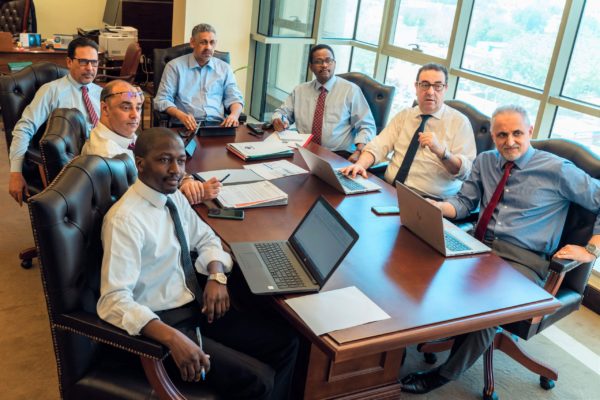The Board of Directors of the Arab Bank for Economic Development in Africa (BADEA) has approved 8 social and environmental impact projects in West, Central and Southern Africa as well as the Sahel region.
These new approvals aim at fostering both Arab-African cooperation and African regional integration, supporting impactful environmental projects that focus on addressing African climate change, and closing the development gap in Africa, in line with BADEA’s 2030 Strategy, the United Nations SDGs and the African Union’s 2063 Agenda.
Four public sector projects and three capacity development grants worth USD 110.765 Million (65 Billion FCFA), in five countries and the Sahel region with a special focus on climate change adaptation, clean water, agricultural land development, infrastructure and financial services development were among the approvals.
On this special occasion, H.E. Dr. Sidi Ould Tah, BADEA’s Director General, said “today, the board has approved 8 strategic projects – all with strong links to climate change mitigation, sustainable agriculture as well as women and youth empowerment. This is not a coincidence. These focus areas are at the core of BADEA’s 2030 strategy and we are strongly committed to working towards the Global Climate Action Agenda. Whether it requires concessional and blended public sector finance or pure non-refundable grants for capacity development, we remain dedicated to supporting African countries by funding innovative climate change solutions, limiting the severe impact of climate change, and achieving net zero carbon emissions by 2050.”
The first USD 50 Million sovereign loan was allocated to an agricultural land development and climate change adaptation project in the lower Mono River basin in Benin. Through the establishment of sustainable irrigation networks on 1,500 hectares, this key project will improve food supply and address the negative impacts of climate change in agriculture, boost rice productivity by up to 133% and increase other crops production by 250%. This inclusive project will also provide at least 2,000 new job opportunities, with a special focus on youth and women.
The second USD 28 Million sovereign loan was allocated to the construction of the “Maki” Interchange intersection of “Francophone Road” and “Europa Road” in Madagascar. This strategic infrastructure project is expected to double the usage of public transport vehicles, significantly reduce traffic jams and travel time (thus lowering greenhouse gas emissions of vehicles) and will also increase the local purchasing power thanks to cost savings of about 20% through reduced repair and maintenance requirements for public service and other vehicles.
The third USD 25 Million sovereign loan was allocated to Burkina Faso’s National Inclusive Finance Fund, as a line of credit for SMEs. Women empowerment is a core aspect of this social inclusion project and 60% of the 100,000 beneficiaries will be women entrepreneurs. The project is expected to create at least 6,000 direct and indirect jobs over a period of five years.
The fourth USD 6.30 Million sovereign loan was allocated to the second phase of the drinking water supply project for the city of Abeshi in Chad – providing clean drinking water for 15 villages.
The Board also approved FCFA 860 Million (USD 1.465 Million) in three non-refundable grants. The first non-refundable grant of USD 500,000 will finance the second phase of the pilot project for the rehabilitation of mangrove trees to preserve the environment in the Gambia. Up to 1 Million mangrove trees in 15 villages will be planted as a climate change solution in the region.
Indeed, planting mangrove trees is widely regarded as one of the solutions to the climate crisis, thanks to their high ability to capture and store carbon. Monitoring carbon balances of mangroves using the latest technology will be an essential dimension of the project.
Similarly, USD 465,000 climate change regional non-refundable grant was provided to the Sahel Institute, a leading research institution focused on finding solutions to climate change, food security and desertification in the Sahel region, in order to fund the development of strategic technologies and plans for carbon sequestration and reduce the carbon footprint of its member states.
Lastly, another USD 500,000 non-refundable grant was allocated to finance the pilot project for the development of value chains and the promotion of tourism in the Ribeira de Prêncibal in Cape Verde. This grant builds upon the dam project previously financed by BADEA ten years ago to improve sustainable food supply and agricultural development. The grant will finance the rehabilitation of the agricultural products processing center, provide marketing trainings to “women in agriculture” entrepreneurs, and create new job opportunities for women and youth in 22 communities.
Under the Trade Finance window, a new trade finance facility was approved amounting to USD 50 Million for the benefit of a key state-owned company in Burkina Faso to finance importation of strategic commodities from Arab and African countries and foster trade exchanges between the two
regions as well as Intra-African trade.
These new sustainable and high social impact loan approvals highlight BADEA’s strong commitment towards more green and inclusive African economies.



